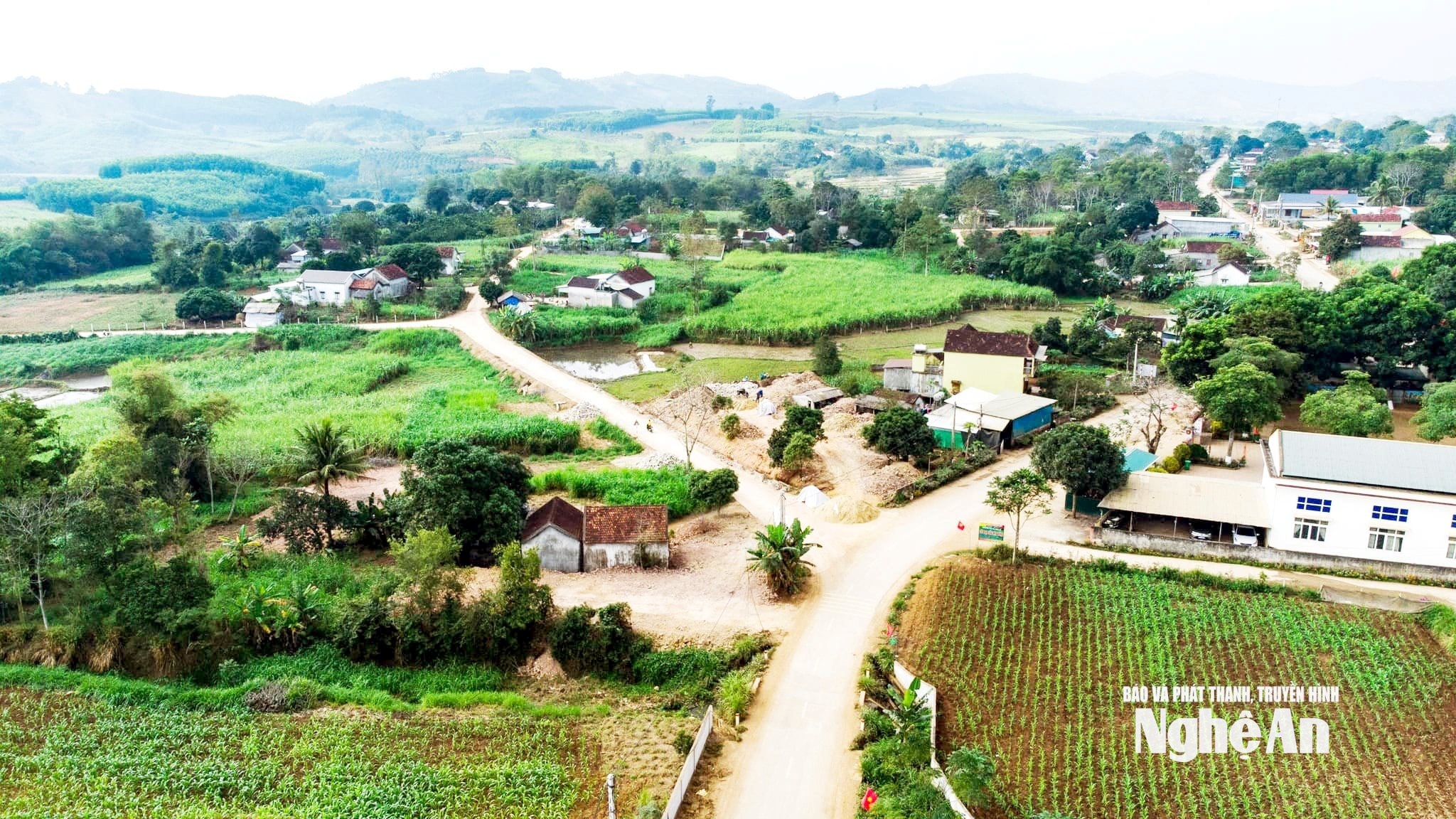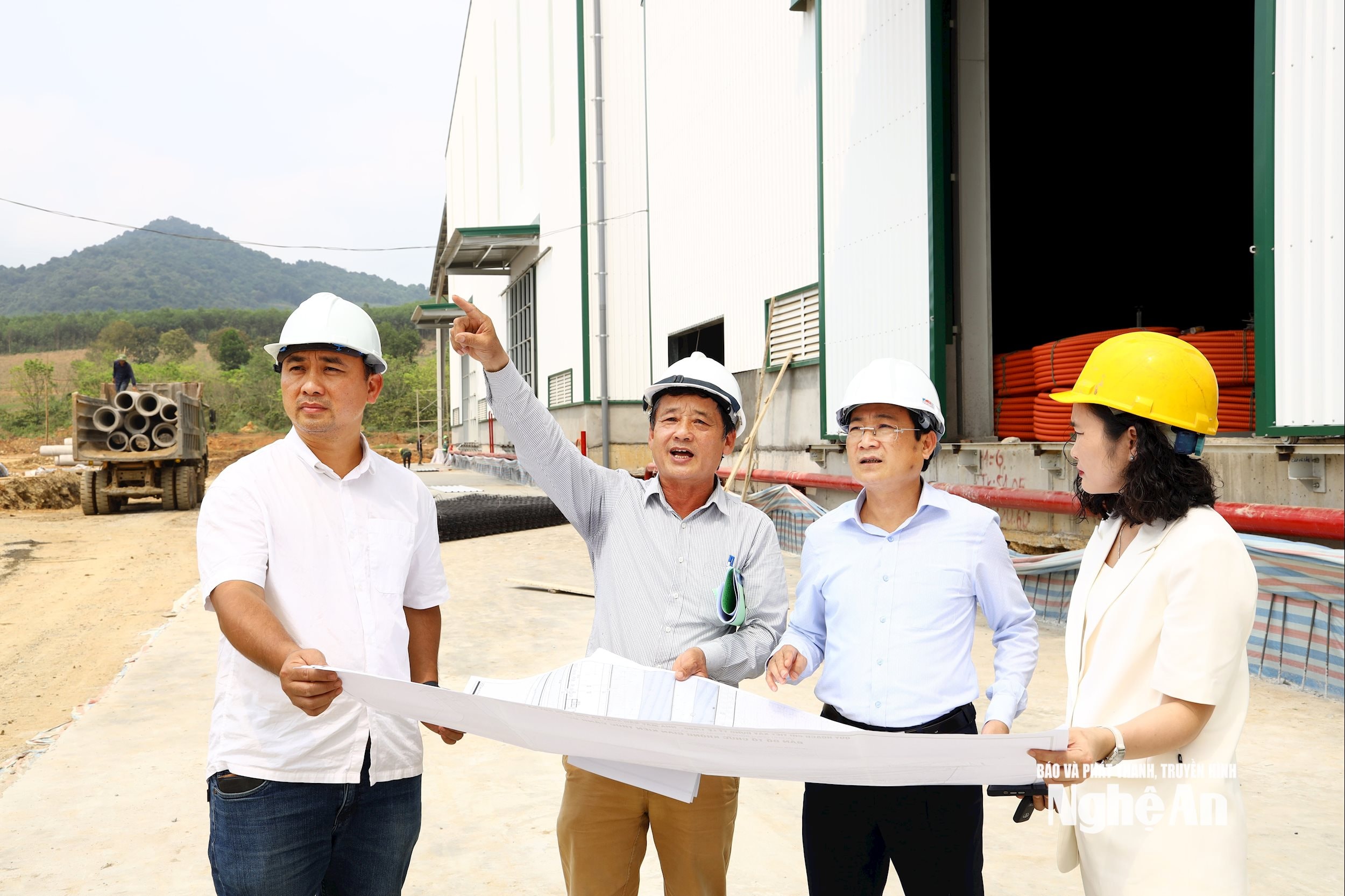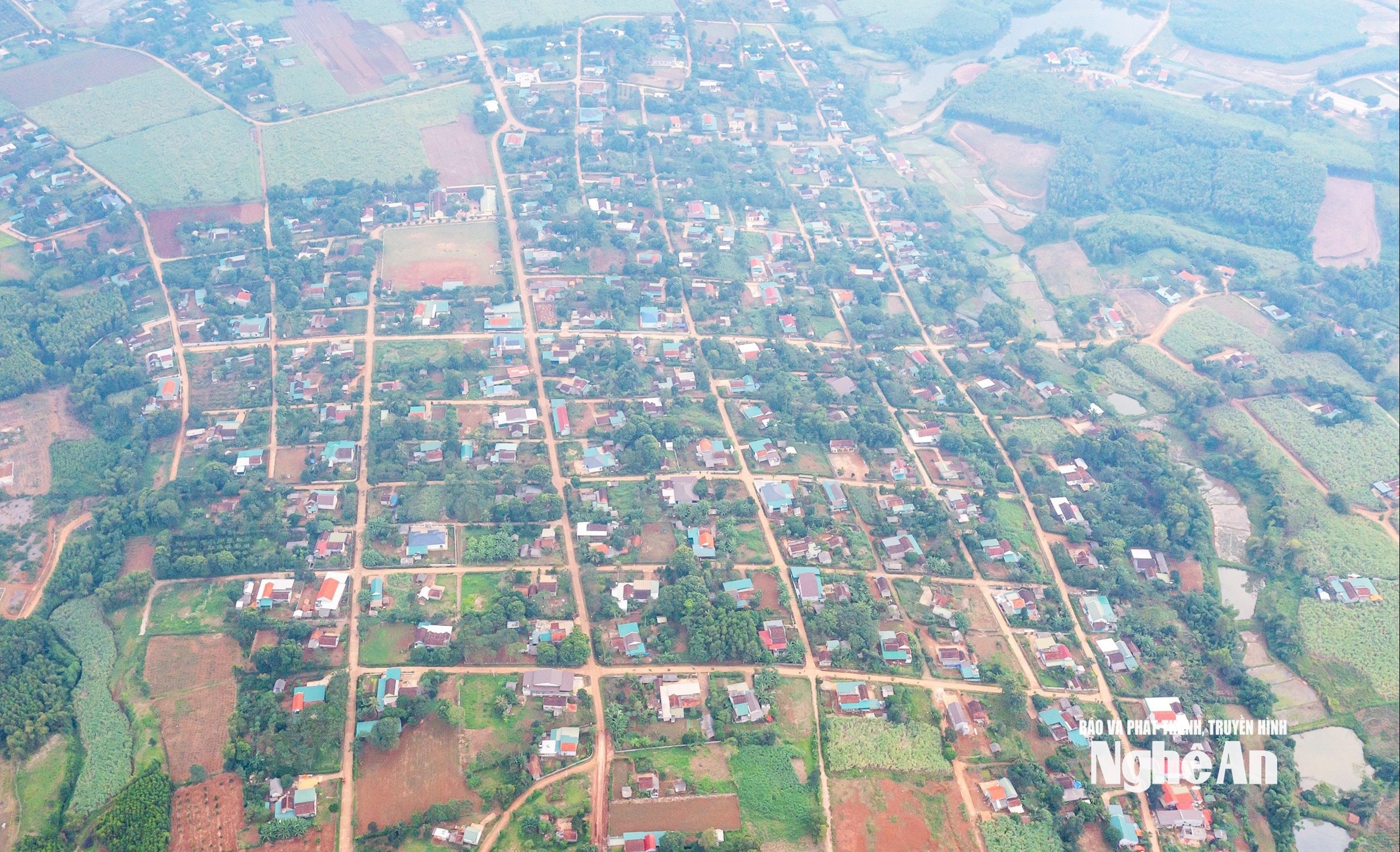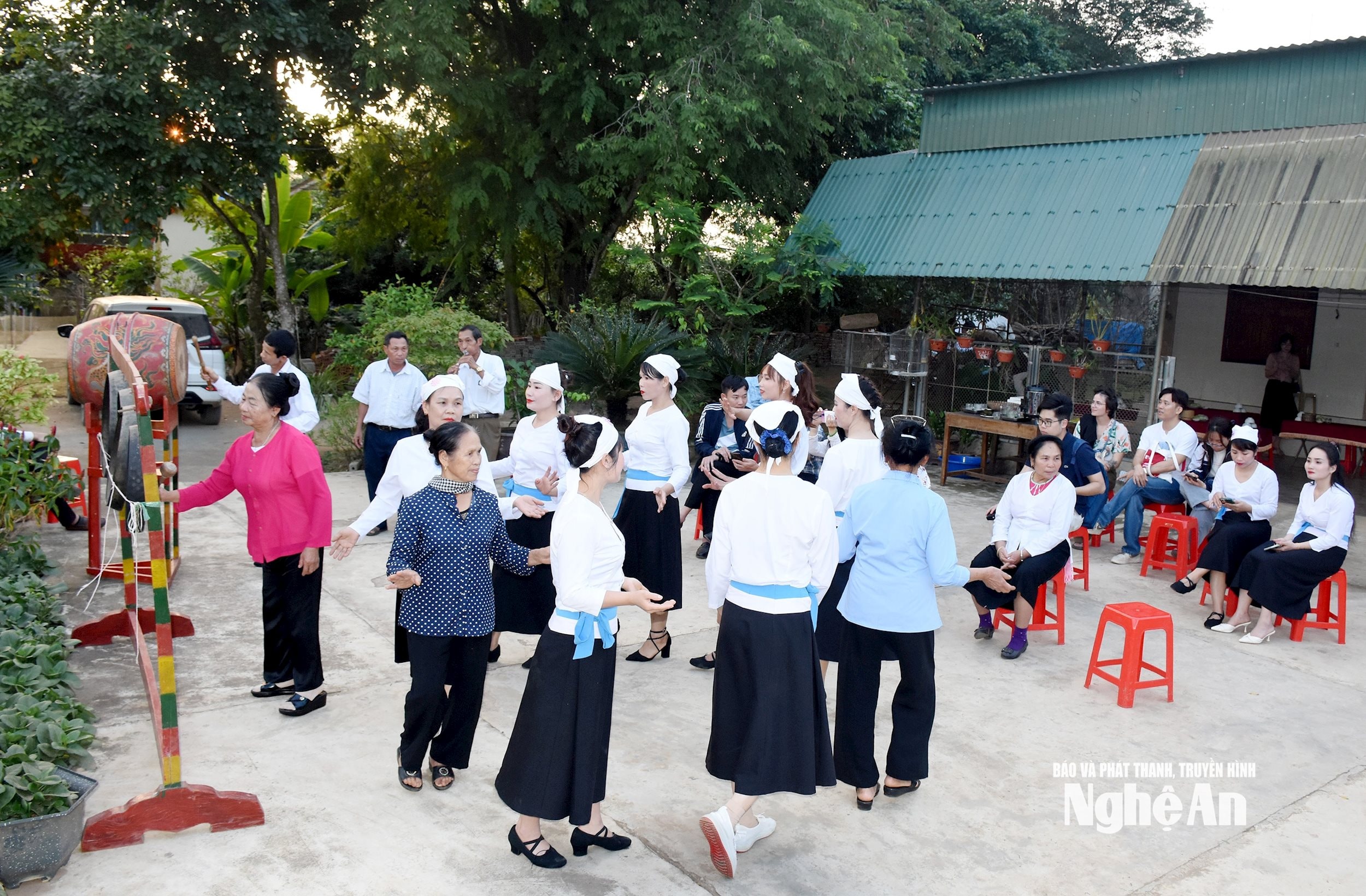Nghia Tho Commune exploits potential advantages, aiming for sustainable development
After the arrangement of administrative units and the implementation of a two-level local government, Nghia Tho commune entered a new term with advantages in land, transportation and human resources. The Party Committee, government and people of the commune set the goal: to promote advantages, arouse internal strength, strive to soon turn Nghia Tho into an advanced new rural commune, strongly transforming in the period 2025 - 2030.
A new start on a foundation of great potential
Nghia Tho was formed on the basis of merging the entire area and population size of the communes of Nghia Hoi, Nghia Loi and Nghia Tho (old) according to Resolution 1678/NQ-UBTVQH15 (June 16, 2025).
The process of reorganization, reception and consolidation of the organization has created a larger administrative unit with great potential for socio-economic development. The commune Party Committee was established under Decision 3627-QD/TU (June 18, 2025) and officially came into operation from July 1, 2025; after the reorganization, there are currently 49 grassroots party organizations and affiliated party cells with about 980 party members.

Nghia Tho owns a large land fund, including about 1,600 hectares of red basalt soil suitable for industrial crops, fruit trees and vegetables; the traffic system is conveniently connected to National Highway 48D, 48E and provincial roads, creating conditions for the circulation of goods, attracting investment and developing the processing industry. Rivers, streams, lakes and dams with water all year round have been and are advantages for the development of agriculture, aquaculture and ecotourism.

During the term before the merger, member communes achieved remarkable results in agriculture, forestry and new rural construction: forest coverage rate reached 27.33%; planted forest area was about 1,415.28 hectares; food production was stable at 4,200 - 4,400 tons/year.
Notably, Nghia Loi (before the merger) was recognized as a commune meeting new rural standards in 2021, Nghia Tho (before the merger) was recognized in 2023, and Nghia Hoi (before the merger) maintained its criteria. These results are an important foundation for Nghia Tho after the merger to advance to advanced new rural criteria.

Regarding financial management and employment, the total budget revenue for the 5 years of the 3 communes before the reorganization is estimated at 165,243 million VND, of which the total budget revenue in the area is estimated at 14,296 million VND. In the 5 years, 15 vocational training classes were organized for 452 workers, creating new jobs for 2,137 workers, the rate of trained workers reached 75.18%. These specific figures reflect the efforts in resource mobilization and job creation at the grassroots level.
Shaping the development direction
in the new phase
Based on the identified advantages and limitations, Nghia Tho commune sets out comprehensive development goals, focusing on combining economic development with improving the quality of life, preserving cultural identity and perfecting the new rural institutional system.
In particular, education and training is identified as one of the pillars for local human resource development. The communes before the merger have invested in upgrading facilities; the results of universalization and illiteracy eradication are good (meeting the standard of universalization and illiteracy eradication level 2), the rate of secondary school graduates is 100%. Currently, 10/11 schools meet the standard of level 1; 3 facilities maintain the standard of level 2 (Nghia Hoi Primary School, Nghia Tho Primary School, Nghia Tho Kindergarten); the plan to maintain and improve school standards continues to be a priority.

The primary health care system has been strengthened. Before the merger, Nghia Hoi Health Station was re-recognized as meeting national standards in 2023, and Nghia Loi Health Station was re-recognized as meeting national standards in 2024. Basic health care programs, disease prevention and national target programs on health care have been effectively implemented.
In the field of culture and sports, the community cultural life is vibrant with folk song clubs, gong clubs, and folk culture clubs being maintained and expanded; 2-3 mass art performances and grassroots sports competitions are organized every year.
The rate of cultural villages and cultural families in all communes is high. Investing in smart radio systems and promoting the commune electronic information portal has increased the effectiveness of propaganda and connecting information to the people.
Regarding communes meeting new rural standards, the locality has focused resources on completing the criteria. The goal in the coming period is to complete the advanced new rural criteria: continue to solidify schools, upgrade medical stations, complete hamlet cultural houses, increase the rate of hardened rural roads, ensure clean water for daily life, and increase the rate of waste collection and treatment. These goals are set in the commune space development roadmap, linked with the development of specialized areas and industrial and service clusters.
Looking forward, Nghia Tho commune sets clear goals for 2030. Per capita income strives to reach 60 - 69 million VND/year, local budget revenue is about 3.3 billion VND, and 100% of commune-level roads are paved. The economic structure continues to shift in a positive direction, in which agriculture, forestry and fishery account for 46.5 - 47.85%; industry - construction 34.5 - 38.5%; services 13.35 - 13.62%.
In the production sector, Nghia Tho aims to achieve 4,500 - 4,600 tons of grain, maintain about 3,700 hectares of main crops, and at the same time build at least 16 OCOP products meeting 3-star standards, aiming for the title of advanced new rural commune by 2030.
Along with economic development, cultural, social, educational and social security indicators are also specifically determined. The locality strives for 98% of the population to participate in health insurance, 100% of children under 1 year old to be fully vaccinated, and to reduce the poverty rate by an average of 0.2 - 0.25% per year.
By 2030, about 35% of villages will achieve cultural titles, 26% of families will achieve sports families, 100% of households will have standard housing, and the rate of malnourished children under 5 years old will decrease to 8.86%.
In terms of labor, the commune aims to increase the rate of labor participating in social insurance to 37%, increase the rate of trained labor, and improve the quality of human resources. In particular, the commune-level digital transformation index (DTI) strives to rank 60/130 in the province, creating a foundation for modern management and sustainable development.
With high political determination, people's consensus and aspirations to rise, Nghia Tho believes it will turn these targets into reality, affirming its position as a dynamic and sustainable developing land of Nghe An province.
